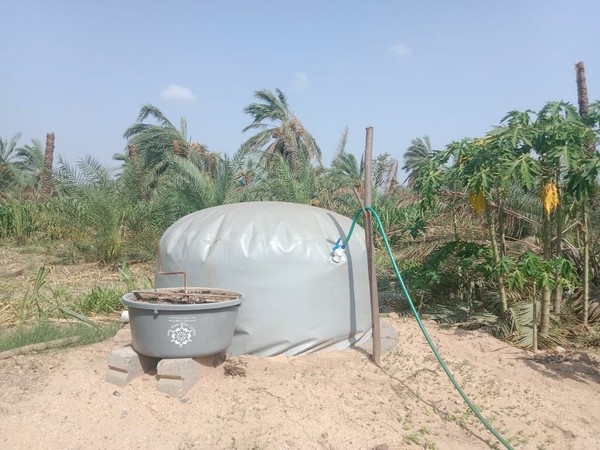PM Modi's Gobar-Dhan Yojana: Transforming Rural India with Clean Energy and Health Benefits
The Gobar-Dhan Yojana, led by PM Narendra Modi, aims to promote clean energy in rural areas through biogas plants. With subsidies from central and state governments, these plants foster a cleaner environment, provide health benefits, and create employment opportunities. Over 7,200 biogas plants are currently operational.

- Country:
- India
To promote clean fuel, the central government under the leadership of Prime Minister Narendra Modi has implemented the Gobar-Dhan Yojana (Galvanizing Organic Bio-Agro Resources Dhan Yojana), focusing on cleanliness and sustainable development in rural areas, as per a release. This scheme offers a subsidy of Rs 37,000 to establish biogas plants, providing alternative energy sources, a clean environment, health benefits, and employment opportunities to rural communities. Currently, more than 7,200 biogas plants are operational in the state, enhancing the prosperity of livestock owners while reducing traditional fuel costs and improving public health.
It is noteworthy that PM Modi has launched the nationwide 'Swachhata Hi Seva - 2024' campaign from 17 September to 31 October, aiming to accelerate cleanliness programs across India, according to the statement. Under the leadership of Chief Minister Bhupendra Patel, the 'Swabhav Swachhata-Sanskar Swachhata' spirit has been instilled among the citizens of Gujarat through various cleanliness activities statewide.
As the 'Swachhata Hi Seva' campaign progresses nationwide, biogas plants under the Gobar-Dhan Yojana are contributing to clean fuel production and environmental sustainability. Launched on 1 November 2018 by the Ministry of Jal Shakti's Department of Drinking Water and Sanitation, the scheme aims to convert organic waste, such as cattle dung and agricultural residues, into biogas, compressed biogas (CBG), or bio-CNG. This transformation supports waste management, renewable energy production, cleanliness, income for farmers, and sustainable agricultural practices.
The establishment of biogas plants is subsidized by the central and state governments, with beneficiaries contributing only Rs 5,000 out of the total Rs 42,000 cost. Banas Dairy, Sabar Dairy, Doodh Sagar Dairy, Amul Dairy, and NDDB are implementing agencies for these plants. Under Phase-2 of the Swachh Bharat Mission (Rural), 7,276 biogas plants have been installed to date across 33 districts. In 2022-23, Rs 50 lakh per district was allocated for these units, with 97 percent currently operational in Gujarat.
According to a survey by Sabar Dairy, families prefer cooking with biogas due to better taste, faster cooking times, and easier utensil cleaning. Health benefits include reduced respiratory and eye infections and decreased diseases caused by flies and mosquitoes. The Gujarat government plans to establish 10,000 additional plants across 50 clusters, contributing to reduced LPG use and pollution, while the slurry from biogas plants is used as organic fertilizer, promoting organic farming. Fertilizer cooperatives formed by self-help group women have fostered self-reliance and new employment opportunities.
(With inputs from agencies.)
ALSO READ
PM Modi Leads Tributes on Ambedkar's Mahaparinirvan Diwas
PM Modi ensured 300% increase in budget outlay for northeast in a decade: Sarbananda Sonowal
Manipur Congress submits memorandum to PM Modi, calls for action on Manipur crisis
INDIA bloc parties from Manipur urge PM Modi to visit state for restoration of peace
"All-round development made in north-east after formation of PM Modi BJP govt": Union MoS Nityanand Rai










